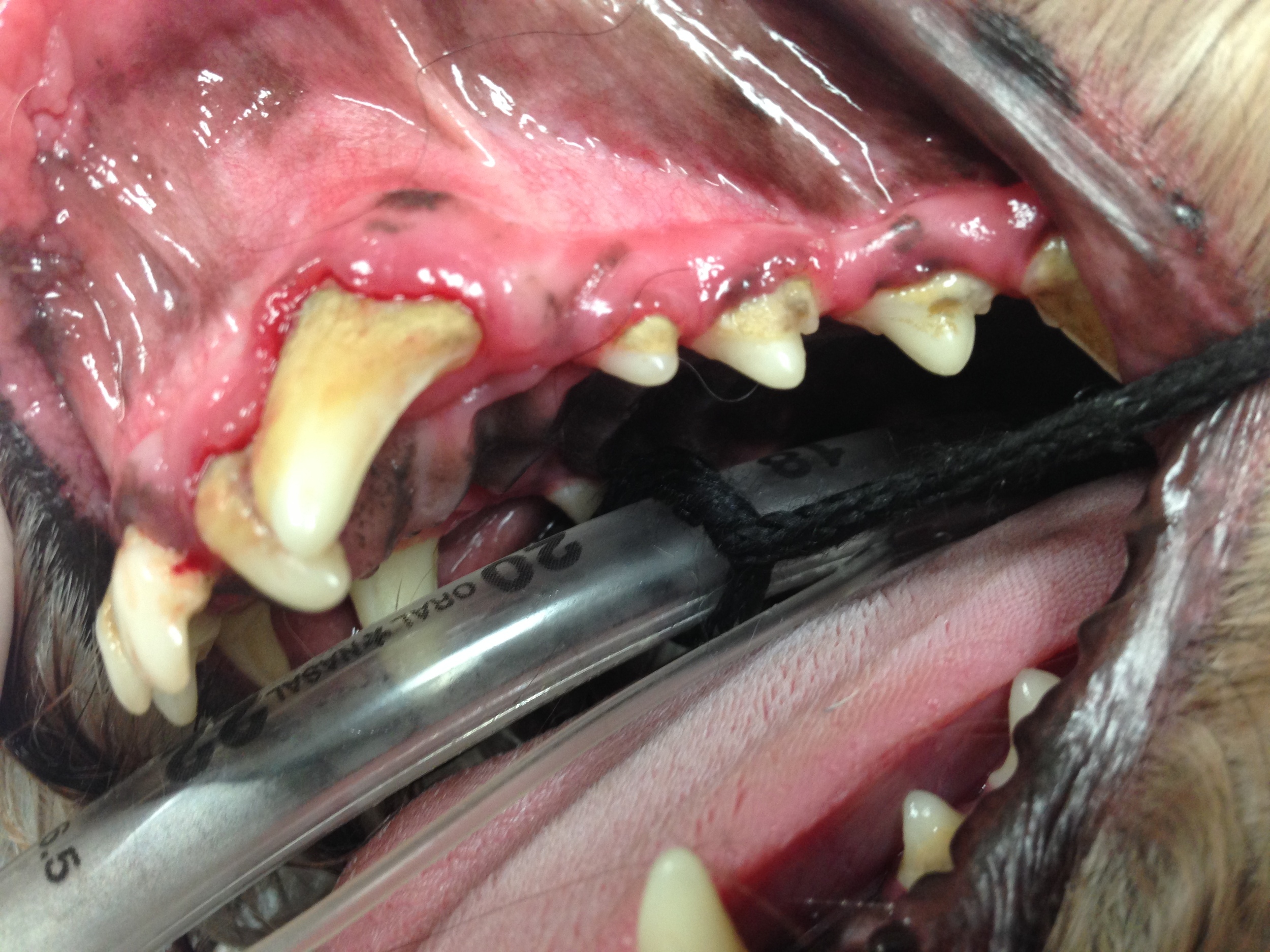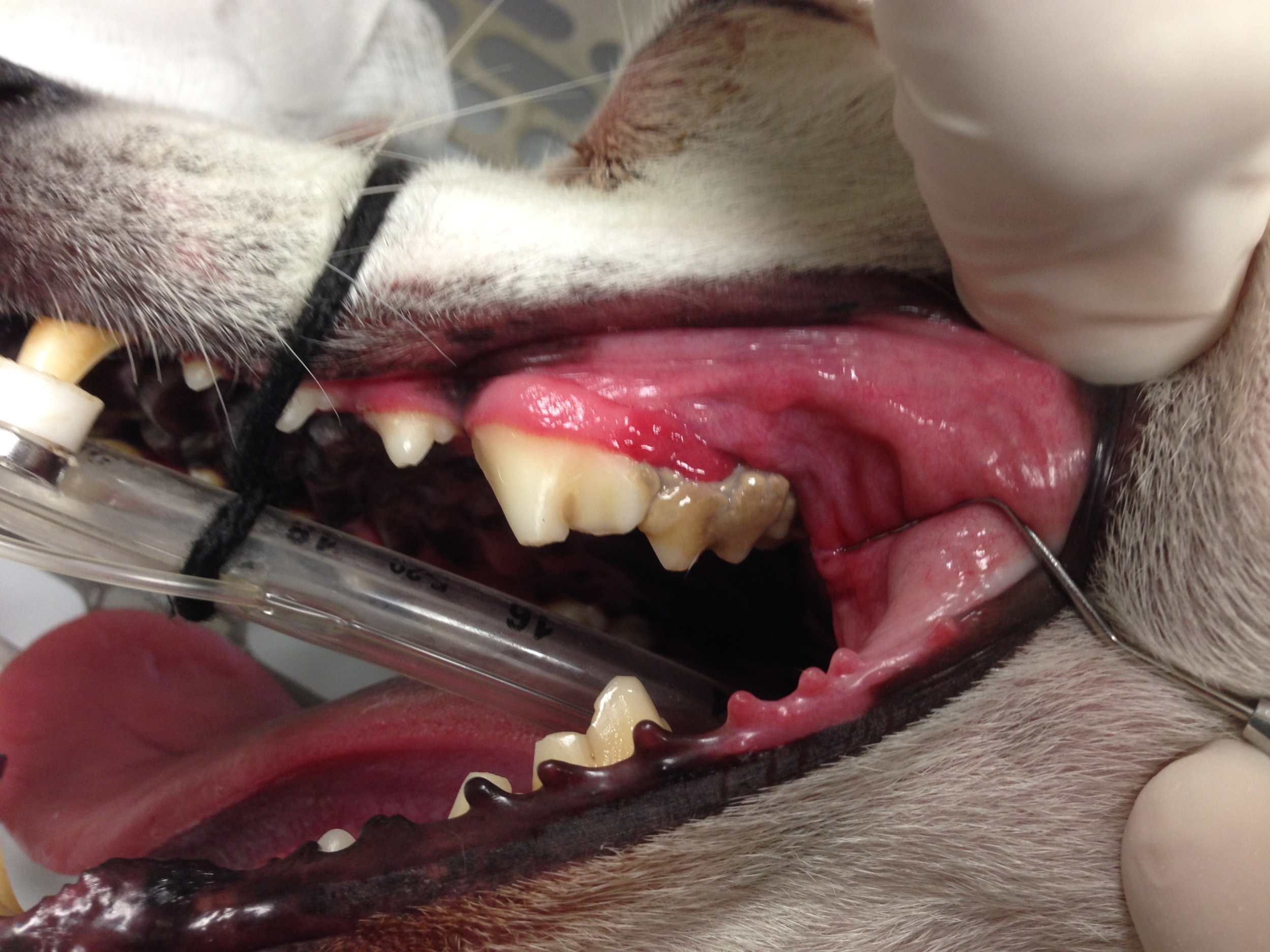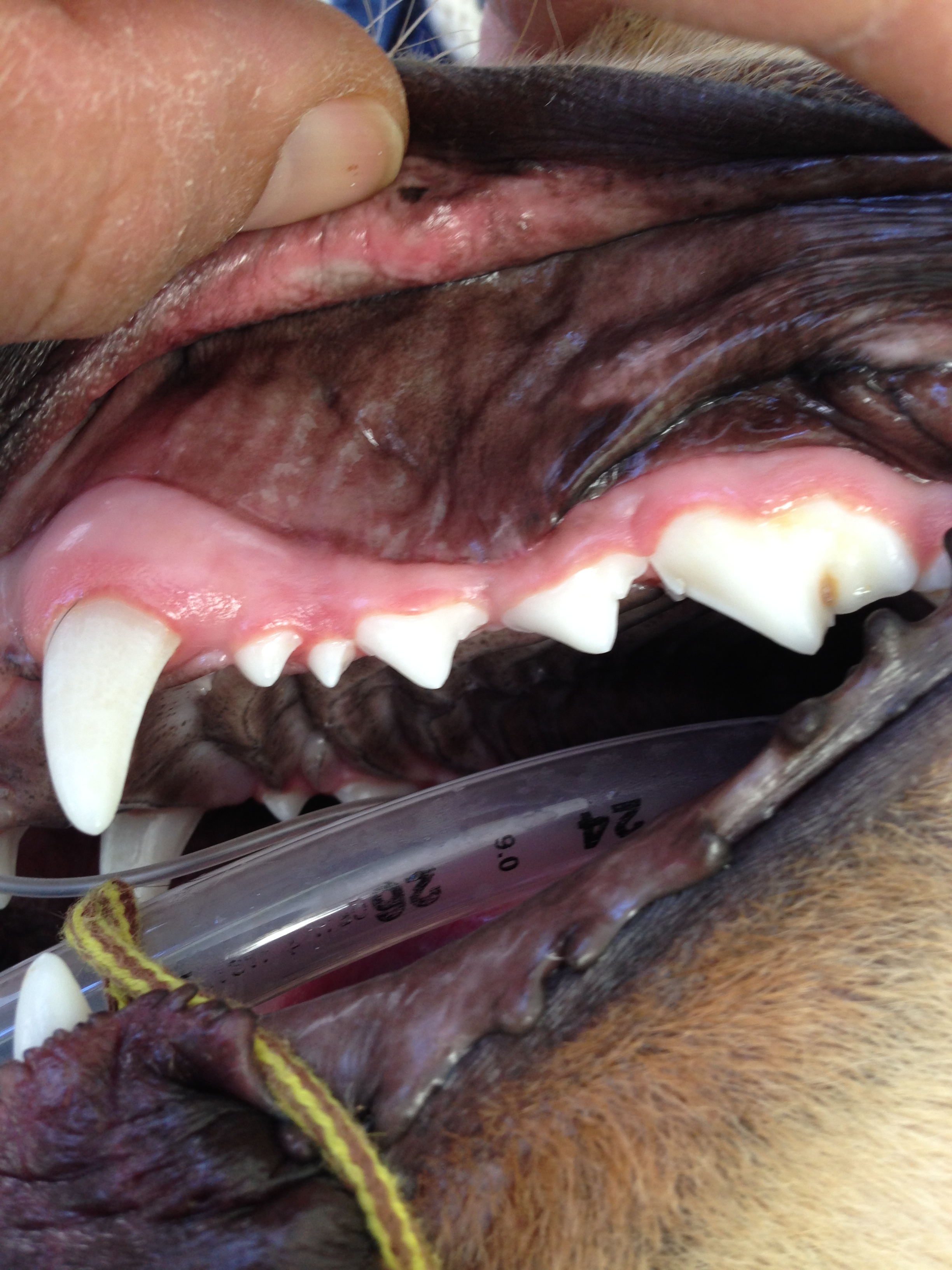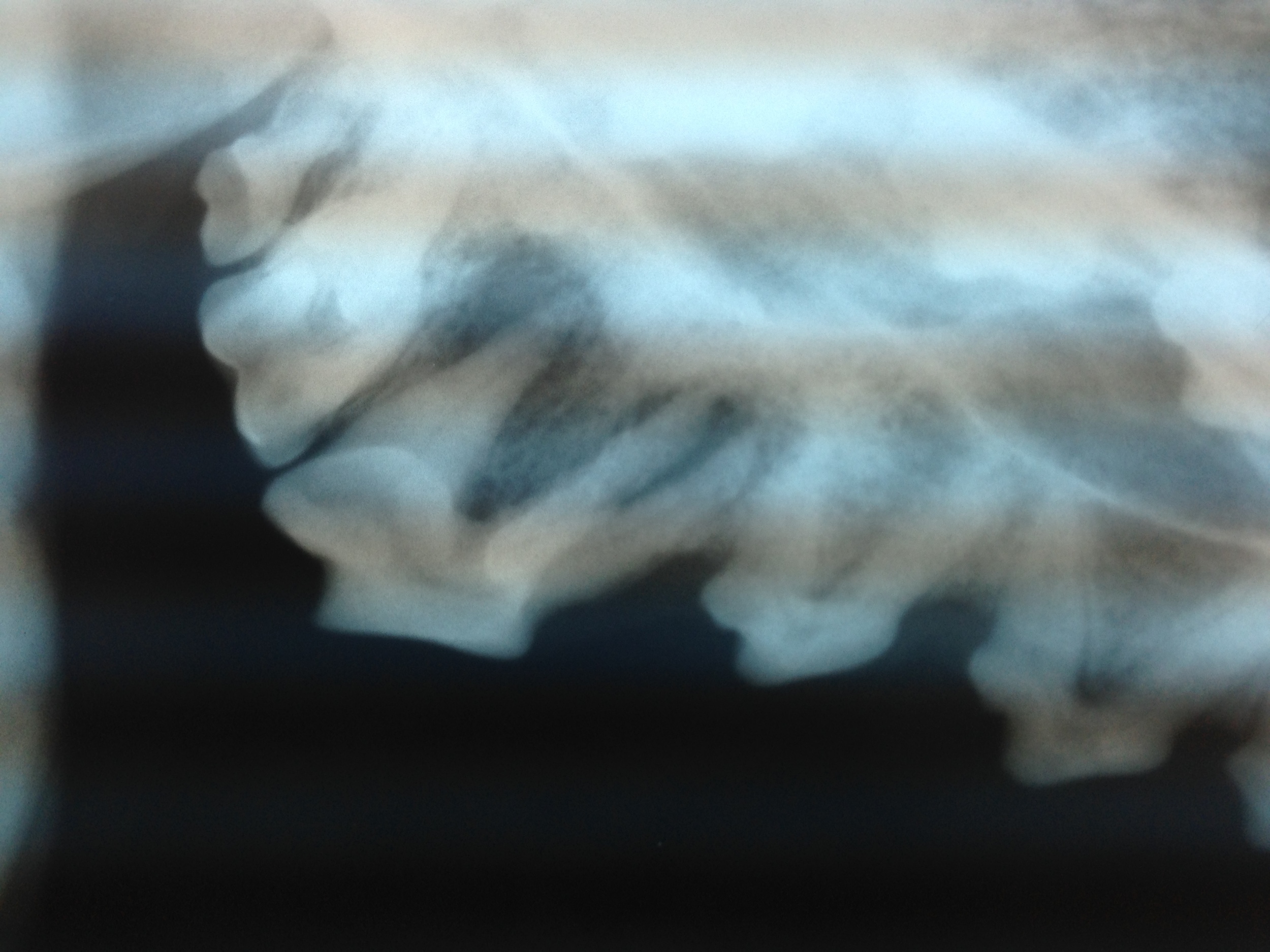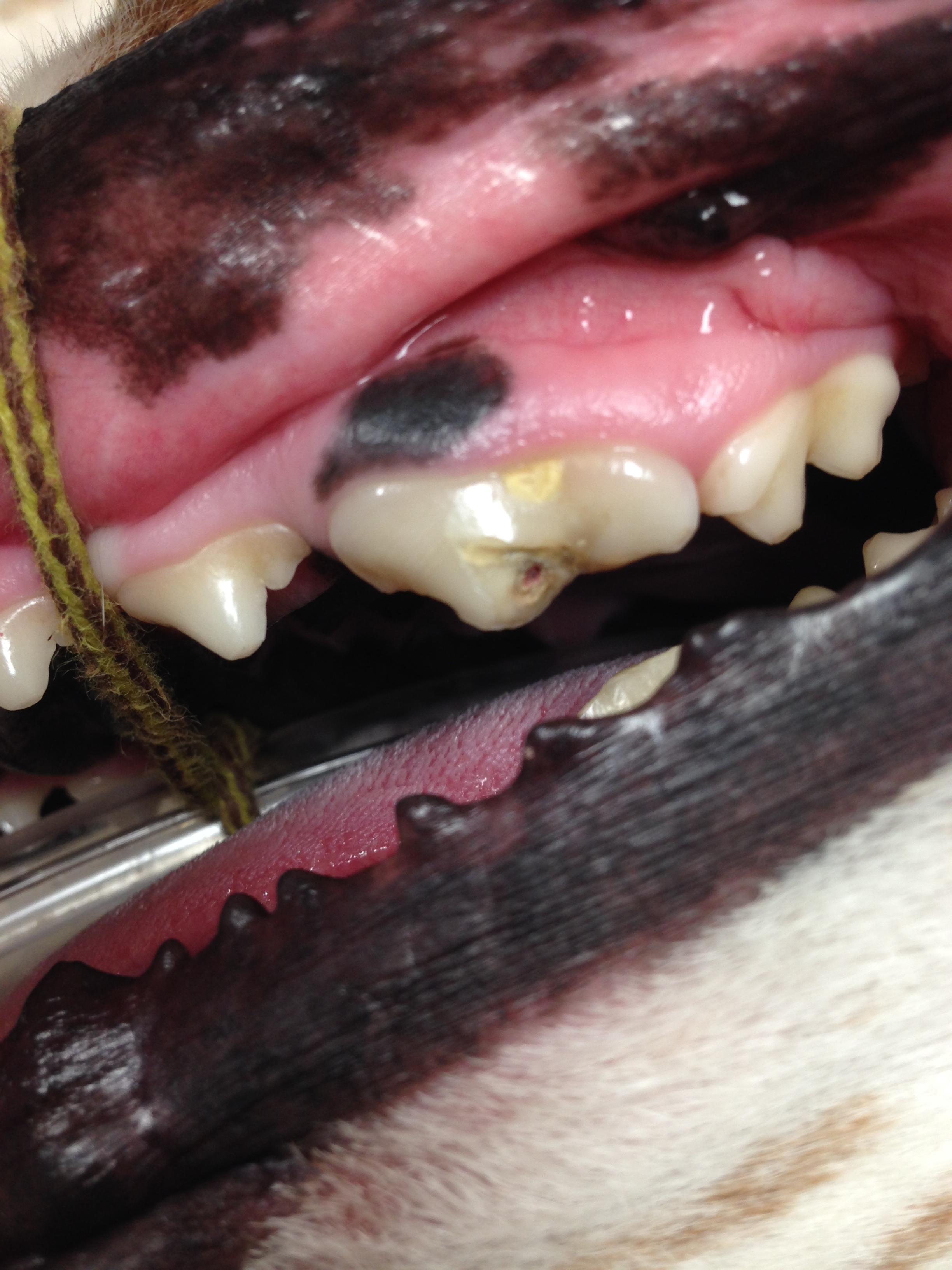Dentistry
Oral hygiene is an important part in having a healthy pet. The buildup of plaque and tartar can lead to periodontal disease. This disease causes swelling, tenderness, recession and bleeding of the gums as well as pain and bad breath. Symptoms to look for are yellow/brown tartar buildup along the gum line, bad breath and red gums. If left untreated periodontal disease can result in tooth loss and surgery can be required. The infection can also spread to other organs of the body through the bloodstream.
Fourth Line Animal Hospital is equipped with the techniques to help improve oral hygiene in your pets. Along with advice from the Veterinarian, Fourth Line Animal Hospital has a high speed dental machine which is available for cleaning, scaling and polishing of the teeth.
Pet Dental Care
What can I do to keep my pet’s teeth clean?
There are many ways that you can keep your Pet’s teeth clean. One of the best ways is to brush their teeth on a regular basis. You can buy a toothbrush and toothpaste for your pet from your veterinarian or at a pet store. Do NOT use human toothpaste on your pet. Regular teeth brushing will help reduce tartar and plaque build up. Dental chew treats, rope chew toys, special dental diets and water additives can all help prevent tartar and plaque build up as well.
What dental diseases are common in pets?
Periodontal disease and Gingivitis are both common in dogs and cats.
Periodontal disease is inflammation or infection of the tissue around a tooth. This causes the gums to recede and expose the sensitive unprotected part of the tooth root surfaces. If it is untreated, the infection spreads and can cause the tooth to fall out and weaken the jawbone.
Gingivitis is inflammation of the gums. It occurs when there is a build up of bacteria and plaque. Gingivitis can lead to Periodontal disease.
How can I tell if my pet is having issues with their teeth?
Dogs and cats can easily hide health issues from us, but they do show us signs and symptoms. A few ways to tell if your pet is having an issue with their teeth include: smelly breath, inflamed or red gums, difficulties chewing harder foods and tartar and plaque buildup on their teeth.
Dental Surgery
When a dental surgery is completed by your veterinarian, it is done under general anesthetic. During the dental surgery a Veterinary Technician or Veterinarian will clean and scale your pet’s teeth. The Veterinarian will examine the teeth and if there are any teeth that are no longer healthy, the he may need to extract them. While your pet is under anesthetic, X-rays of their teeth can be taken. The x-rays will help the Veterinarian better evaluate your pet’s overall oral health.
